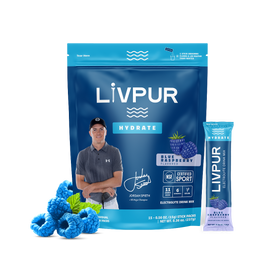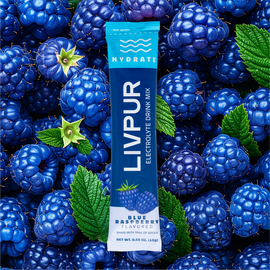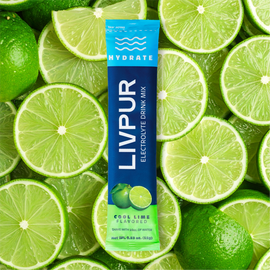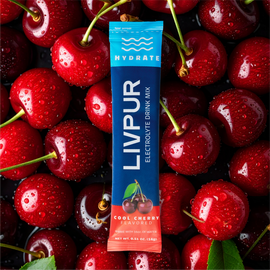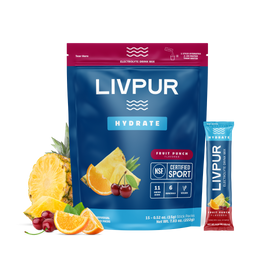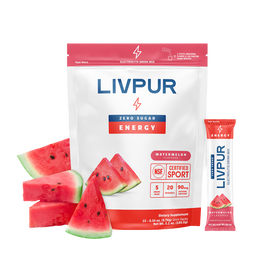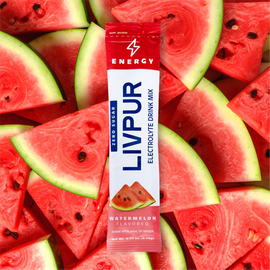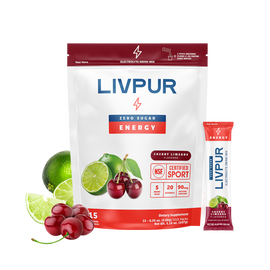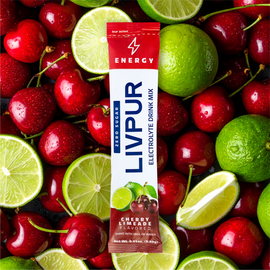August 26, 2025 • By Katie Switow • Blog
Common Signs You’re Dehydrated — and How to Fix It
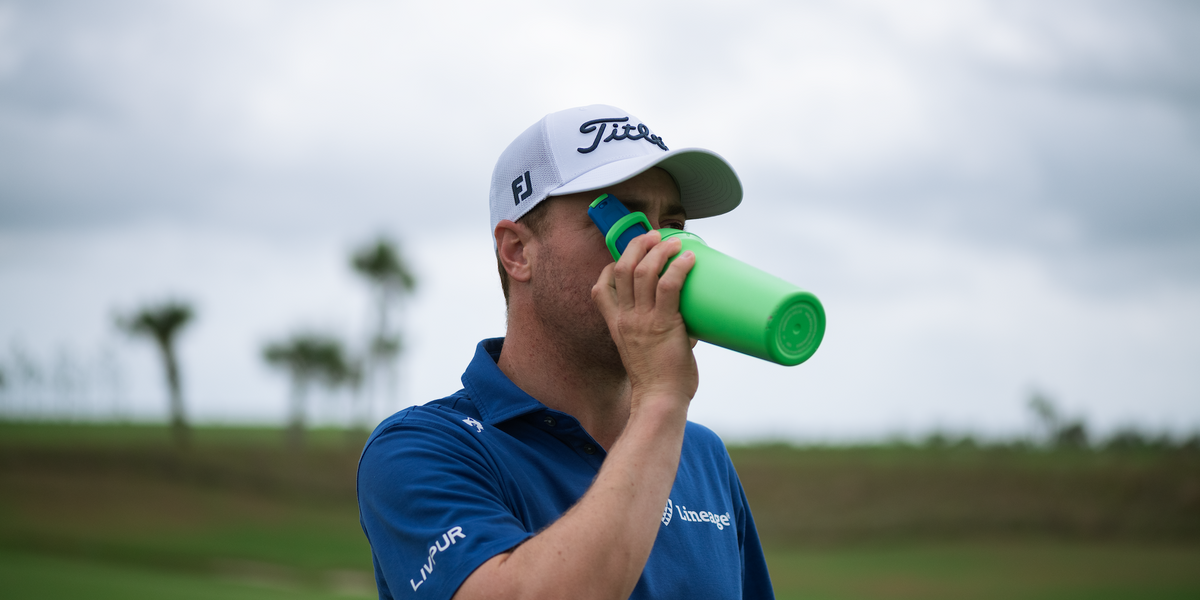
Dehydration is more common than you might think, and it doesn’t always show up as thirst. After a busy summer day or an intense workout, symptoms like headache and fatigue can come on quickly. In this blog, we’ll break down the most common signs you’re dehydrated, what causes it in the first place, and how to rehydrate quickly so you can start feeling like yourself again.
Understanding Dehydration

Dehydration occurs when you don’t manage to replace the fluids your body loses over the course of a day. Mild dehydration can lead to noticeable symptoms like headaches or brain fog, while severe dehydration can become a serious health risk requiring immediate health care.
And it’s not just about water — your body also needs electrolytes like sodium and potassium to maintain balance and support proper rehydration. Recognizing the stages and causes of dehydration is key to keeping your body hydrated and your energy levels steady.
What Can Increase the Risk of Dehydration?
Hot weather and high-intensity exercise are two of the most common situations that lead to dehydration. Illnesses that cause vomiting or diarrhea can also lead to rapid fluid loss.
Dehydration in Teenagers and Young Adults
The most classic symptoms of dehydration are dry mouth and an increased heart rate. These can show up more frequently when teenagers start consuming diuretics like caffeine. Young adults are also more likely to experience mild to moderate dehydration from time to time, especially when seasons change or you don’t drink enough water to make up for your lost fluids.
Dehydration in Older Adults
Older adults are at higher risk for both mild and severe dehydration, in part because the body’s ability to conserve water and signal thirst naturally declines with age. Some medications can increase fluid loss, and chronic health conditions such as diabetes or kidney disease can further complicate things.
Symptoms of dehydration in older adults may show up subtly — like dizziness or low blood pressure — but can escalate quickly without enough water intake.
5 Common Symptoms of Dehydration

- Thirst: It seems obvious, but thirst is often the first sign your body needs more fluids. If you’re already feeling thirsty, you’re likely already experiencing mild dehydration.
- Fatigue or Low Energy: Less fluids means less blood volume, making your heart work harder, which can leave you feeling tired.
- Headaches: Particularly after hot weather or exercise, lack of proper water intake can lead to headaches or migraines.
- Dizziness: Dehydration can cause a drop in blood pressure. If you find you’re feeling woozy while standing, you might want to take a seat and sip on some water.
- Dark Yellow Urine: A common, easy-to-spot symptom of dehydration is dark urine. Ideally, it should be light yellow or nearly clear.
What to Do When You’re Dehydrated: Rehydration Tips
In most cases, dehydration is easy to remedy when caught early. Here’s what to do:
- Start sipping water immediately: Take small sips to help your body fully absorb fluids.
- Add electrolytes: Rehydration drinks and powders, or simply adding a pinch of salt and sugar in water, can help you replace key minerals like sodium and potassium.
- Avoid sugar or caffeine: These types of drinks can worsen fluid loss and possibly irritate your stomach.
- Rest and cool down: Stop what you're doing, find a cool spot to sit, and give your body time to recover from heat or exercise.
- Track your water intake: Being mindful about how much water you drink, like using a bottle with measurements, can help you stay consistent.
When to Seek Medical Attention
Mild dehydration can usually be managed at home with water and electrolytes, but there are symptoms you shouldn’t ignore or try to treat at home:
- Rapid heartbeat
- Fainting
- Confusion
- Extreme fatigue
- Inability to keep fluids down
These can be signs of severe dehydration or an underlying condition that needs urgent treatment.
What to Expect from Medical Care
When you visit a medical professional for dehydration, they’ll likely start by assessing the severity of your fluid loss through a combination of physical symptoms, medical history, and possibly lab tests. You may receive oral or intravenous (IV) rehydration with fluids that contain a carefully balanced mix of electrolytes like sodium and potassium. In more serious cases, they may also check for kidney function, electrolyte imbalances, or infections that could be causing or complicating your dehydration. Extreme dehydration is life-threatening and requires medical attention.
Tips on How to Prevent Dehydration

The best way to deal with dehydration is to stop it before it starts. Staying on top of your water intake and being mindful of fluid loss — especially during heat, exercise, or illness — can go a long way in keeping you healthy and energized.
- Drink enough fluids throughout the day: Sip water or healthy sports drinks regularly, not just when you’re thirsty.
- Prepare ahead of time: Bring a water bottle with you when you’re out of the house.
- Eat hydrating foods: Fruits and vegetables are full of water and nutrients that help support overall hydration.
- Enjoy alcohol and caffeine in moderation: And make sure to drink water while sipping on your favorite beverage.
-
Add electrolytes: Replenish lost minerals from an intense workout with electrolyte drinks or tablets.
To simplify things, you can get all-in-one blends that combine all of these elements into a single serving. Hydration mixes like LivPur Hydrate pair electrolytes and amino acids to support fluid balance. Good hydration habits don’t have to be complicated.
Final Thoughts to Keep in Mind
Dehydration can come on fast, so it’s good to keep an eye out for common symptoms — like headaches or a dip in your energy — to stay ahead of it. Keep up with your water intake, listen to your body’s signals, and don’t wait until you’re parched to start sipping.
